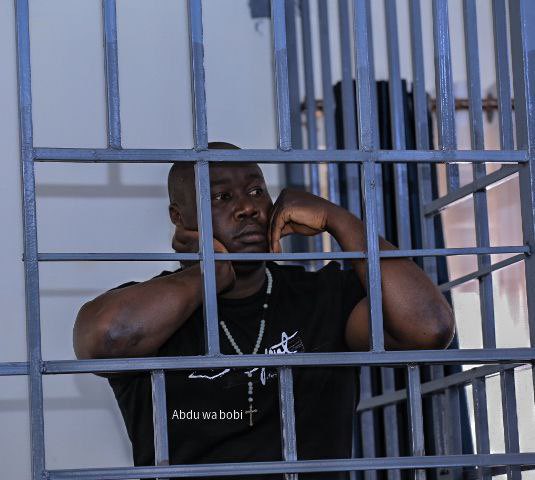The state has officially completed its investigation into the case against Mr. Achileo Kivumbi, the civilian head of security for the opposition National Unity Platform (NUP).
Mr. Kivumbi faces serious accusations of unlawful possession of defense stores, which could have significant legal and political implications.
Request for Hearing Date
On Monday, during a session at the General Court Martial (GCM) in Makindye, the state prosecutor, Lt Col Raphael Mugisha, confirmed that all necessary investigations had been finalized.
“Investigations are complete, and we seek a hearing date,” Lt Col Mugisha stated before the court, which was presided over by Brig Gen Freeman Mugabe.
This marks a crucial step in the legal process, moving the case closer to trial.
Defense Team Demands Evidence Disclosure
In response to the state’s announcement, Mr. Kivumbi’s defense team, led by lawyer Mr. George Musisi, called on the prosecution to disclose all documented evidence they intend to use during the trial.
This request is in line with legal procedures that ensure the defense has adequate time and resources to prepare for the case.
The disclosure of evidence is a fundamental right in legal proceedings, aimed at maintaining fairness and transparency in the judicial process.
Court Schedules Hearing and Bail Application
Brig Gen Mugabe acknowledged the completion of the investigation and set October 8 as the date to begin hearing the case.
Additionally, the court scheduled September 17 for the hearing of Mr. Kivumbi’s bail application.
The outcome of this bail hearing will determine whether Mr. Kivumbi will remain in custody or be released while awaiting trial.
Opposition Leader Criticizes Military Trial
Following the court session, Mr. Joel Ssenyonyi, the Leader of the Opposition in Parliament and a prominent figure within the NUP, spoke to journalists.
He criticized the trial, labeling it as politically motivated.
Mr. Ssenyonyi expressed strong disapproval of trying civilians in military courts, a practice that has been a point of contention in Uganda’s legal system.
“The army court fears civilian courts because there, suspects can be released on cash bail, which is not an option here. They try so hard to suppress the suspects so that they can force them to accept in exchange for their freedom,” Mr. Ssenyonyi remarked.
He emphasized the importance of the Supreme Court ruling on the appeal that challenges the Constitutional Court’s earlier decision, which deemed the trial of civilians in military courts illegal.
Allegations of Political Motivation
Mr. Ssenyonyi, who also serves as the Member of Parliament for Nakawa West, further alleged that the charges against Mr. Kivumbi were linked to his opposition activities.
He claimed that Mr. Kivumbi had been questioned about his supposed involvement in organizing anti-corruption protests against Parliament.
According to Mr. Ssenyonyi, security officials attempted to pressure Mr. Kivumbi into admitting that he was one of the mobilizers of the protests in exchange for leniency or freedom, but he refused, maintaining his innocence.
The State’s Allegations
The state’s case against Mr. Kivumbi centers on an incident that reportedly took place on August 3, 2024.
According to the prosecution, Mr. Kivumbi was found in possession of a pair of Lieutenant Colonel pips, which are considered gazetted defense stores, at Nansana East II B Zone, in Nansana Municipality, Wakiso District.
The possession of such items by a civilian is illegal under Ugandan law, and the state views this as a serious offense.
Kivumbi Denies Charges
Despite the allegations, Mr. Kivumbi has categorically denied any wrongdoing.
His defense team is expected to argue that the charges are baseless and politically motivated, aimed at undermining the leadership and security apparatus of the NUP, a key opposition party in Uganda.
The Broader Implications
The outcome of this case could have significant implications for Uganda’s political landscape, particularly regarding the use of military courts to try civilians.
It also raises questions about the intersection of law, politics, and human rights in the country.
As the trial date approaches, all eyes will be on the proceedings, which could set a precedent for future cases involving political figures and opposition members.

